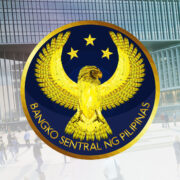Cultivating innovators: The Agri-Aqua Innovation Challenge 2024

The past weeks have been a vibrant journey across the country, immersing us in the groundbreaking work of agri-aqua innovators. This exploration is at the heart of the Agri-Aqua Innovation Challenge, a dynamic initiative spearheaded by the Department of Science and Technology–Philippine Council for Agriculture, Aquatic and Natural Resources Research and Development, the Asian Institute of Management (AIM) and the Management Association of the Philippines (MAP).
This collaborative effort, supported by Agri-Aqua Technology business incubators from 25 state universities, empowers startups and student teams to harness the transformative potential of science and technology. Their collective goal: to develop innovative products and services that uplift Filipino farmers, fisherfolk, industries and the nation as a whole.
The impact of this challenge is already being felt. Consider the food processing industry’s reliance on expensive, imported pectin. In Iloilo, a Unesco Creative City of Gastronomy, Dr. Concepcion Ponce has developed limontene, a liquid pectin extracted from readily available calamansi peels using an efficient microwave-assisted method. Her patented process simplifies and reduces the cost of pectin production while preserving the valuable antioxidants of calamansi, simultaneously bolstering local calamansi farmers and addressing waste management from juice processing.
From waste to resources
The theme of converting waste into valuable resources resonates in Kenneth Yu’s “Earth Board.” By transforming coconut husk waste into high-performance construction panels through patent-pending natural binders, this innovation offers farmers in Iligan, who are facing the challenges of slumping copra prices, a significant new revenue stream. Earth Board panels provide a structurally sound and more cost-effective alternative to traditional plywood.
Dr. Ruel Mojica’s B4U elevates the coffee experience by tailoring blends to specific flavor profiles and organizational needs. Leveraging the science of coffee, B4U—nestled in Cavite, the Philippines’ coffee capital—partners with local coffee farmers to create unique blends, enabling organizations to enhance their marketing or product offerings with a truly distinctive taste.
For those venturing into aquaculture, Francis Quijano’s Agritektura provides turnkey services, simplifying the adoption of recirculating aquaculture systems. They offer comprehensive design, implementation and training, customized to the specific context and objectives of each organization.
Similarly for agriculture, Gillian Santos’ AniTech employs IoT (internet of things)-based sensor systems for both pre-and post-harvest operations. Their integrated hardware and software solutions empower farms to meticulously monitor critical data, optimize agribusiness operations and significantly reduce food loss.
Student teams
The spirit of innovation is vibrant among student teams as well. BioCoat-Z from De La Salle University co-incubated at Laguna State Polytechnic University a sustainable alternative to the laborious sleeving of cacao fruits with an efficient sprayable biological control agent that effectively targets pests without harmful chemicals.
Mi-DNA from Central Luzon State University has leveraged lateral flow technology to make their diagnostic test kit more user-friendly for the rapid and reliable detection of the devastating African Swine Fever.
Sensitech from Mariano Marcos State University has created a portable smart gadget, coupled with a mobile app for real-time soil nutrient analysis and tailored crop recommendations.
The agri-aqua technology business incubator at UP Visayas has emerged as a particularly fertile ground for innovation. Impressively, three of the top 10 teams among the 90 participants originated from this institution.
Alongside the promising startup CirPro, student teams AXIOM and Avamos demonstrated exceptional ingenuity. AXIOM’s agent-based simulation gamifies the complexities of running an aquaculture business, reducing uncertainty and building confidence in aspiring aquapreneurs. Avamos has developed a remarkable bio-circular adsorbent derived from mussels, effectively capturing harmful ammonia, phosphate and carbon dioxide from water bodies.
Discover more about the inspiring products and services of the current agri-aqua innovators at youtube.com/@agri-aqua. Or you can meet them on their Demo Day at the AIM on April 30, up to 6 p.m. Potential customers, partners and investors are welcome to attend this free event.
Nurturing future agri-aqua innovators in high school
Building on this success, we must now look toward cultivating the next generation of agri-aqua innovators. In a sector undergoing rapid transformation due to climate change, technological advancements and geopolitical shifts, fostering a spirit of innovation among our youth is paramount to ensuring the long-term competitiveness and viability of our agri-aqua industry. The time is ripe to extend the transformative opportunity of this challenge to senior high school students in its next iteration.
Senior high school students stand at a pivotal juncture, shaping their career paths and exploring diverse fields. Unfortunately, agri-aqua careers often don’t capture their attention. However, by fusing agriculture and aquaculture with the dynamic world of innovation, we can ignite their excitement and inspire them to pursue careers in these vital sectors.
Early exposure to real-world challenges sparks interest, cultivates creativity and hones problem-solving skills, empowering students to critically analyze the issues facing the agri-aqua sector and devise solutions through science and technology.
The goal extends beyond simply developing new technologies; it’s about cultivating an innovative mindset. By including senior high school students in the competition, we are not only imparting technical skills but also fostering a crucial shift toward real-world problem-solving and entrepreneurial thinking.
Engaging students in authentic challenges motivates them to be resourceful, to persevere in developing solutions and to value the exploration of creative ideas.
Considering the Philippines’ ranking in the Pisa Creative Thinking assessment, the Agri-Aqua Innovation Challenge: High School Edition would provide a vital platform for our students to exercise their creativity and build the confidence to think outside conventional boundaries. It would guide them through the innovation process—from empathizing with the needs of their “customers” to iteratively refining their product prototypes. This immersive experience will transform their ideas into tangible products or services that benefit others.
For many senior high school students, the Challenge could mark the beginning of their innovation journey. Recognizing that this can be a daunting path, we must invest in training teachers to effectively guide their students, provide access to facilities where they can build their ideas, create systems to track and monitor their progress and establish a robust network of mentors to offer invaluable guidance throughout the process.
It is imperative that the government, academia and industry collaborate to nurture these future innovators today, laying a solid foundation for a stronger, more resilient agri-aqua sector tomorrow.
The author is the co-vice chair of the MAP agribusiness committee. He is also the program director of Agri-Aqua Innovation Challenge and Adjunct Professor of the Asian Institute of Management. Feedback at map@map.org.ph and matthew.escobido@gmail.com.



















